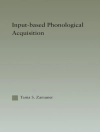This book is the first comparative study of English, German, French, Russian and Hungarian anti-proverbs based on well-known proverbs. Proverbs are by no means fossilized texts but are adaptable to different times and changed values. While anti-proverbs can be considered as variants of older proverbs, they can also become new proverbs reflecting a more modern worldview. Anti-proverbs are therefore a lingo-cultural phenomenon that deserves the attention of cultural and literary historians, folklorists, linguists, and general readers interested in language and wordplay.
विषयसूची
Chapter 1: The Comparative Study of Anti-Proverbs: An Introduction.- Part I: Types of Proverb Alterations.- Chapter 2: Addition in Anti-Proverbs.- Chapter 3: Omission in Anti-Proverbs.- Chapter 4: Substitution in Anti-Proverbs.- Chapter 5: Blending of Proverbs.- Part II: Anti-proverbs and Verbal Humor.- Chapter 6: Punning in Anti-Proverbs.- Chapter 7: Further Humor Devices as Used in Anti-Proverbs .- Chapter 8: Summary and Implications for Further Research.
लेखक के बारे में
Anna T. Litovkina is Associate Professor at J. Selye University, Slovakia. She is a linguist, a folklorist, and a humour researcher.
Hrisztalina Hrisztova-Gotthardt is Chief Quality Officer at the Swiss agency “French, Italian and German in Switzerland”. Her research interests lie in the field of applied linguistics.
Péter Barta is Associate Professor at Eötvös Loránd University, Hungary. He is a linguist and a paremiologist.
Katalin Vargha is a research fellow in the Institute of Ethnology at the Research Centre for the Humanities, Hungary. Her research interests include short forms of folklore and humor.
Wolfgang Mieder is University Distinguished Professor of German and Folklore at the University of Vermont, USA. He is the founding editor of Proverbium: Yearbook of International Proverb Scholarship.












